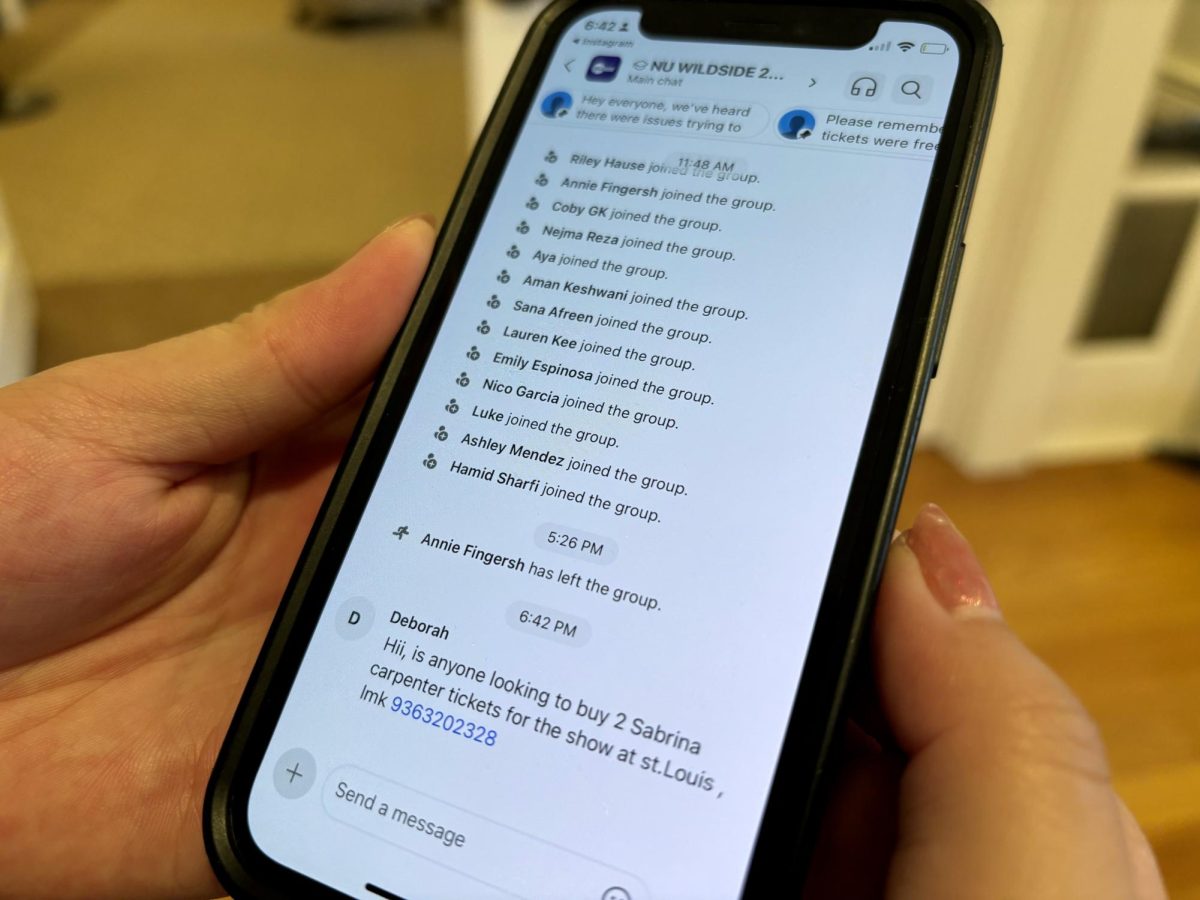Northwestern students using GroupMe said they are increasingly encountering unwanted members and messages in their chats used for student groups, leading to frustration and inconvenience.
GroupMe is a popular communication tool used across campus. The app allows users to quickly join a chat using a link, making it easy for both Apple and Android users to communicate. Clubs, residential dorms and Greek organizations frequently use the app’s services.
Starting last year, spam messages began to increasingly circulate in various GroupMe chats, with bots often selling in-demand concert tickets, some students said. These bots typically target larger chats and disguise themselves as student accounts.
“We’re just under the impression that it’s unfortunate, but it’s something that is likely going to happen with GroupMes of such a large size,” said Weinberg senior and NU Wildside president Tyler Schreiber. “We do try to minimize their impact. … It’s not necessarily something we can always prevent, so we just have to address the situation as best we can when it arises.”
Members of the Wildside executive board work quickly to delete spam bot messages as they appear, Schreiber said. The Wildside GroupMe, which has nearly 2,500 users, also requires an NU student email to join the chat, acting as an additional safeguard.
Weinberg senior Amanda Ward, who helps run the Transfer Student Organization GroupMe, said that in addition to requiring a University student email, each new user must be manually approved by an executive board member.
GroupMe chatbots prove to be an irritation for regular members of the chats as well.
“For me, it’s just annoying. I have seen it so much that I understand that it’s a scam, and I just get annoyed at that person spamming the GroupMe,” Weinberg junior Dave Arthur said.
Arthur said last year, GroupMe accounts with names not in the NU directory sold Taylor Swift tickets, but switched to selling tickets for Sabrina Carpenter earlier this fall.
Prior to a lakeside football game on Oct. 5, Arthur said he noticed a potential chatbot that previously marketed concert tickets was trying to sell a student section football ticket at a marked-up price.
He said he messaged the GroupMe, calling out the spam. Arthur said that seeing these chatbots become more advanced is “concerning.”
“It does worry me, because especially at the beginning of the year, there are probably new students who have never used GroupMe before and haven’t seen the scam, and then fall for it,” Arthur said.
Some organizations go beyond deleting spam messages, attempting to officially document incidents of chatbots.
On Oct. 7, Joseph Washington, Assistant Director for Community Standards and Operations at NU Residential Services, messaged the Southwest Area GroupMe calling for RAs to audit their chats to ensure that only residents were involved. Additionally, he encouraged RAs to file incident reports if they noticed spam in their chat rooms.
Arthur, an RA in the Southwest Area chat, said the initiative started with dorm groups but has expanded to include all NU-affiliated chats. Arthur said he reported over three incidents since the initiative began.
For some, the presence of GroupMe chatbots makes the platform feel unsafe. Ward said chatbots may “detract from the trust” that her organization builds for transfers.
“It’s really a space where we’re trying to create a community and have people who are looking for a nice group to communicate with and to become friends with,” Ward said. “It’s unfortunate that these bots are infiltrating a space that’s supposed to be very safe and open.”
Email: mayawong2027@u.northwestern.edu
X: @mayaw0ng
Related Stories:
— How Northwestern’s political clubs followed election night
— Some of NU’s most competitive clubs are recreational, not pre-professional
— Remote Area Medical club provides free healthcare to underserved communities







